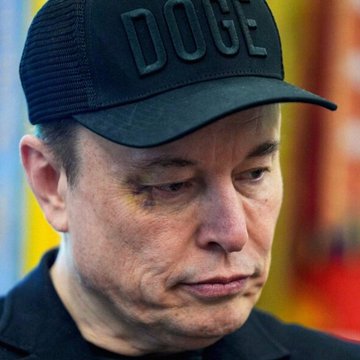Elon Musk’s Alleged Drug Use Under Scrutiny Amidst Political Power and Influence in Trump Administration
This article explores mounting allegations surrounding Elon Musk’s extensive and controversial drug use including ketamine, ecstasy, and psychedelics during his time as a powerful political figure and adviser in Donald Trump's administration. It details concerns about Musk's behaviour, influence over government policy, and potential national security implications amid reports of erratic conduct and substance abuse.

Elon Musk, once hailed as a key ally in Donald Trump’s return to the White House, is now facing intensifying scrutiny over allegations of extensive drug use while serving in a quasi-governmental role during Trump’s second administration. According to detailed reporting by the New York Times and subsequent congressional inquiries, Musk’s drug consumption during the 2024 presidential campaign and into his tenure in the White House was significantly more serious than previously understood.
Sources close to Musk described his use of drugs as “intense and habitual,” far beyond casual or recreational experimentation. Among the substances Musk allegedly consumed were ketamine a dissociative anesthetic with psychedelic effects MDMA (commonly known as ecstasy), psychedelic mushrooms, and Adderall. Musk was reportedly taking so much ketamine that he admitted to others it was affecting his bladder, a known complication from chronic abuse. He was also seen regularly with a medication box containing about 20 pills, some bearing markings consistent with Adderall, a Schedule II stimulant used to treat ADHD but also prone to abuse.
These revelations are particularly concerning due to Musk’s position at the time as head of the Department of Government Efficiency (DOGE), an agency created by the Trump administration to streamline federal bureaucracy. While officially classified as a "special government employee" allowing him to serve up to 130 days a year without the full restrictions of a standard federal role Musk held significant influence over major federal decisions, including budget cuts and agency restructuring.
During his brief tenure at DOGE, Musk initiated sweeping layoffs, including the dismissal of hundreds of employees at agencies such as USAID and the Department of Health and Human Services, often without consulting or informing the White House. His unilateral actions, erratic behaviour, and open criticism of senior officials including labeling Trump advisor Peter Navarro as “dumber than a sack of rocks” fueled tensions within the administration. Notably, even President Trump grew wary of Musk, particularly after learning he was receiving classified Pentagon briefings on China, which raised alarms about potential conflicts of interest.
Adding fuel to the controversy, Musk made headlines for his bizarre public behaviour at pro-Trump rallies including jumping on stage during a Pennsylvania event and giving what appeared to be a Nazi salute at Trump’s inauguration celebration. These incidents, alongside Musk’s increasingly erratic online presence and admissions of binge eating and late-night gaming binges, have raised questions about his mental fitness and judgment.
Democratic lawmakers have seized on the issue. Representative Stephen Lynch, the acting top Democrat on the House Oversight Committee, sent a formal letter to President Trump requesting information on whether Musk was using illicit substances during his time in the White House. “The drastic and erratic nature of Mr. Musk’s decisions and actions as a government employee, coupled with the reports of his drug use, begs the question of whether Mr. Musk was under the influence of illicit substances while working in your White House,” Lynch wrote. He further demanded to know whether drugs were consumed on White House property and if the Trump campaign was aware of Musk’s alleged substance abuse.
Although Musk has claimed publicly including in a March 2024 interview with Don Lemon that he only used a “small amount” of prescribed ketamine once every two weeks to treat depressive moods, this account sharply contradicts claims from insiders. The New York Times report revealed that Musk was frequently using ketamine, sometimes daily, and mixing it with other substances. In a social media post responding to the article, Musk denied ongoing drug use, accusing the Times of fabrication and stating he hadn’t used ketamine in years. The Times, in turn, confirmed it had reached out to Musk for comment multiple times and received no evidence to counter its findings.
Compounding the seriousness of the allegations is the fact that SpaceX, one of Musk’s companies and a major federal contractor, enforces a strict drug-free workplace policy. Yet reports suggest Musk was given advance warning of random drug tests, effectively undermining the enforcement of those policies and raising questions about regulatory oversight.
The issue has also drawn criticism from public figures once aligned with Musk. Sam Harris, a former friend and commentator, publicly denounced Musk’s behaviour in a January newsletter, stating that Musk had lost his moral compass and sense of reality. Meanwhile, former Trump strategist Steve Bannon has gone as far as calling for Musk’s deportation, demanding an investigation into his immigration status and the suspension of his security clearance due to drug use.
Despite stepping down officially from DOGE, internal concerns about Musk’s unpredictability, coupled with a sharp decline in Tesla sales and recurring issues with SpaceX, suggest growing instability in his professional life. His reduced presence at the White House in recent months, followed by his formal departure, has not quelled fears about his lingering influence.
Whether or not Musk receives formal legal or administrative consequences, the ongoing revelations are already reverberating across Washington. They raise pressing ethical and security questions about who holds influence at the highest levels of U.S. government, and what vetting if any is being done when billionaires like Musk are handed unprecedented power.